Feline Health Center Faculty Associates /Staff
Faculty
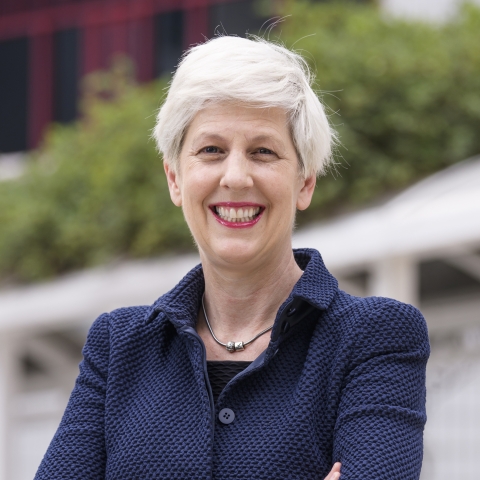
Professor Vanessa Barrs is Chair Professor of Companion Animal Health and Disease at City University's Jockey Club College of Veterinary Medicine and Life Sciences. She graduated from the University of Sydney's Faculty of Veterinary Science in 1990 with a Bachelor of Veterinary Science. Vanessa worked in companion animal practice in Sydney for several years before specialising in Feline Medicine and was awarded Fellowship of the Australian and New Zealand College of Veterinary Scientists in 2000. Professor Barrs completed a Master's degree in bacteriology and a PhD in one-health mycology at the University of Sydney, supported by an Australian Government Endeavour Research Fellowship.
Vanessa was appointed as Senior Lecturer in Small Animal Medicine at the University of Sydney in 2004, where she was Department Head of Small Animal Medicine for almost 15 years and also Professor of Feline Medicine & Infectious Diseases. Other senior leadership roles have included a four-year term as Director of the University Veterinary Teaching Hospital, Sydney (UVTHS), and Advisory Board member of the Marie Bashir Institute of Infectious Diseases & Biosecurity, a One-Health transdisciplinary research institute at the University of Sydney.
Vanessa has held numerous roles advocating for companion animal health, including as a founding panellist of the Australasian Infectious Diseases Advisory Panel and serving on the Veterinary Practitioner's Board of New South Wales and the Australian Veterinary Board Council's Committee for Registration of Specialists. She is a past president of both the Feline Chapter of the Australian and New Zealand College of Veterinary Sciences and the International Society of Companion Animal Infectious Diseases. She was an associate editor for The Veterinary Journal and is a member of the editorial boards of The Veterinary Journal and The Journal of Feline Medicine & Surgery, as well as associate editor for Medical Mycology Case Reports.
BVSc(hons) PhD, Dean of the Jockey Club College of Veterinary Medicine and Life Sciences (JCC)

I am an Associate Research Professor at Cornell University College of Veterinary Medicine. I am a Medical Physicist combining expertise in physics and medicine to help and people and animals. I have published in a variety of fields, including safety and quality improvement in human oncology, machine learning methods from medical images and medical image processing, and am currently exploring the use of AI with medical images in the veterinary setting, including detecting diseases in cats and dairy cows, and preventing injuries in Thoroughbred racehorses.

I am a senior lecturer in the Department of Clinical Sciences, Section of Anesthesia and Pain Medicine, in the Cornell University Hospital for Animals. My research interest is pain management in all species (with strong focus on dogs) — particularly severe, chronic pain and interventional pain medicine. I often collaborate with Sports Medicine/Rehab Service.

I am an Associate Professor in Biomedical Sciences at the Cornell University College of Veterinary Medicine and a member of the fields of Genetics, Genomics and Development, Biomedical & Biological Sciences, and Computational Biology. I am also co-founder and Chief Science Officer of Embark Veterinary, a dog DNA testing company founded in 2015 and incubated at the Cornell McGovern Center, as well as a trustee for the Morris Animal Foundation. My research focuses on complex trait mapping, bioinformatics, statistical genetics, inference of evolutionary forces and demographic history from genomic data, and understanding the evolutionary process of domestication and rapid adaptation.
Prior to joining the faculty at Cornell, I received undergraduate degrees in computer science and evolutionary ecology from the University of Illinois as well as a masters in Computer Science and doctorate in Biology at Purdue. I also worked as a postdoc and research associate at Cornell and Stanford studying population genomics before focusing my research on canine genomics. My family includes three kids, three ducks and a dog, Penny (http://embk.me/penny2848).
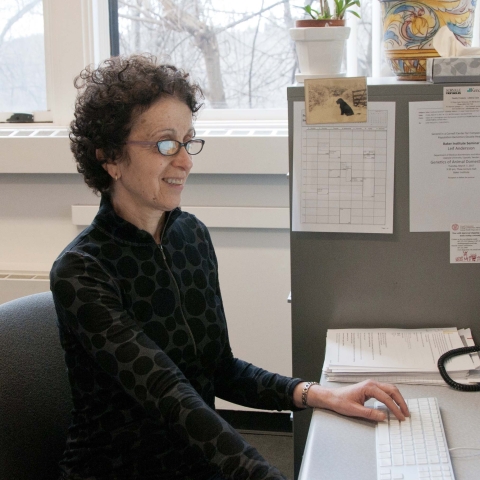
I am a veterinarian and internal medicine specialist whose career has focused on diagnosis and treatment of coagulation disorders. My laboratory is a central site for diagnosing bleeding disorders in dogs, and our research aims to gain understanding of the genetic and environmental factors that cause these diseases. In addition to disease diagnosis, our laboratory works with other veterinary researchers in multi-institution studies to design evidence-based treatment regimens for dogs receiving anticoagulant and antiplatelet drugs, and to develop new and effective blood products for transfusion and regenerative medicine.
Recent/ongoing canine projects include:
- Platelet studies- immune-mediated thrombocytopenia, comparative proteomics
- Anticoagulant therapy- pharmacokinetic/pharmacodynamic studies of new oral drugs
- Transfusion therapy- investigation of lyophilized platelet concentrates, plasma replacement for anticoagulant toxicities

My training is as an internal medicine specialist with a special interest in infectious disease and as an epidemiologist; most of my time is spent in the Small Animal Community Practice guiding veterinary students through primary care cases. I am originally from New Hampshire, obtained my DVM from Cornell, did an internship at the University of Pennsylvania, spent a year in general practice in Oregon, completed a residency in small animal internal medicine at Oregon State University, and obtained a PhD in epidemiology from Boston University School of Public Health while working as an internist for Tufts VETS in Massachusetts. My research focuses on exploring the evidence base behind common primary care recommendations, the effective use of diagnostic/screening tests, and training of veterinary students. I also serve as a resource for other clinician-scientists in designing and analyzing clinical studies.
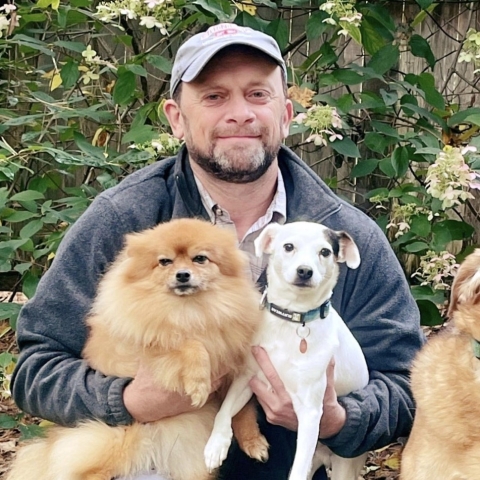
Dr. Brian Collins, D.V.M. '94, is an extension veterinarian for the Cornell Richard P. Riney Canine Health Center and a senior lecturer of community practice service in the Department of Clinical Sciences. He is also a veterinarian at Farm Sanctuary in Watkins Glen, New York and provides consultations for the Cornell Feline Health Center, focusing on animal wellness, preventative care and the human-animal bond. His animal family includes dogs Dottie, Speck and Iris; cat Quinoa; and chicken Gladys.

I am a small animal emergency and critical care specialist. My research employs laboratory investigations and clinical trials and focuses on diagnosis and management of thrombosis, use of biomarkers for diagnosis and management of sepsis, and the treatment of canine immune-mediated hemolytic anemia.

The Goodman Lab leverages genomic technology to study canine infectious diseases in a One Health framework. Thematic research areas include pathogen discovery, antimicrobial resistance and tick-borne disease. We aim to fill knowledge gaps in animal health while informing public health policy.
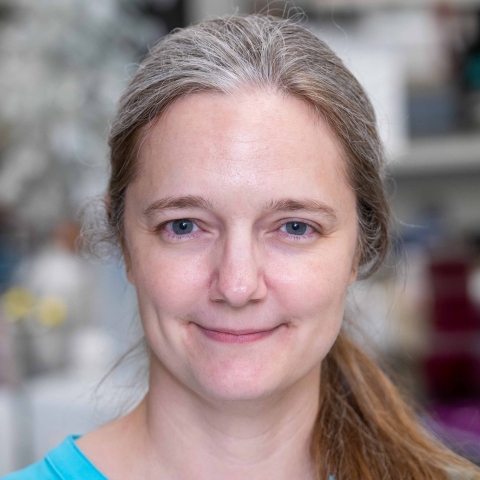
I received my Doctorate of Veterinary Medicine from Auburn University. I then completed a residency in medical oncology at North Carolina State University in 2008 and a research fellowship in the Department of Biomedical Sciences at Cornell University in 2010. I am currently an associate professor in the Department of Clinical Sciences at Cornell University. My research can be grouped into 3 broad categories: i) defining the role of DNA damage response mechanisms (DDR) in tumorigenesis and chemosensitivity as a means to identify biomarkers and therapeutic targets, ii) repurposing of drugs to find low-cost anti-cancer therapeutics, and iii) evaluating the response of normal tissues to anti-cancer therapeutics and examining the clinical progression of cancers in veterinary species.

My research at The Johnson Lab is focused primarily on developing advanced neuroimaging methods in veterinary science. We apply cutting-edge magnetic resonance imaging (MRI) techniques in the evaluation of the canine brain in order to advance our knowledge of neuroanatomy and neuropathology. In doing so, we aim to improve diagnosis and understanding of brain and spinal cord disease in the dog.

I am a Professor of Comparative Ophthalmology at the Cornell University College of Veterinary Medicine and a Diplomate of the American College of Veterinary Ophthalmologists. After graduating from the University of Missouri College of Veterinary Medicine, I completed a small animal medicine and surgery internship at Texas A&M University College of Veterinary Medicine and a comparative ophthalmology residency at Cornell University, where I joined the faculty in 2006.
My research program focuses on ocular infectious diseases and non-invasive advanced in vivo imaging techniques of the eye. I have a specific interesting in canine infectious keratitis, including canine herpesvirus-1 ocular surface diseases. My research involves canine herpesvirus-1 includes investigations into host-pathogen interactions, mechanisms responsible for latent virus reactivation, and novel therapeutic strategies for ocular canine herpesvirus-1 infections.
Maza teaches feline and canine anatomy to veterinary students, with a focus on clinical applications, also discussing the natural history of wild felines regarding their behavior, social structure, and anatomic adaptations for hunting and locomotion.
With the FARVets organization, Maza leads trips internationally to help grassroots animal welfare organizations with their missions to improve animal welfare in their communities. They do this through education and wellness clinics and sterilization clinics to address overpopulation issues, and other projects to promote animal health and wellness in cities and rural and remote villages. Domestically, the group works with regional small humane societies, animal shelters, and trap/neuter/return (TNR) groups by planning and implementing cat sterilization and vaccination clinics for feral and pet cats. Both abroad and domestically, the group teaches veterinarians and veterinary students surgical skills, and consult and advise animal welfare groups how to plan and implement sterilization clinics.
Maza serves as one of the consultants for the Cornell Feline Health Center, offering supplementary information about cats’ health with their owners.

I am professor of virology, and I study canine viruses and immune responses to them. My lab's main areas of study include canine parvovirus and canine H3N2 and H3N8 influenza viruses.

As a clinical expert in veterinary dentistry and oral surgery, I routinely diagnose and treat oral cancer in dogs. As a surgeon, I have the responsibility of helping clients make informed decisions regarding the best treatment options for their pets. Unfortunately, the treatment options currently available have remained unchanged for decades and are all associated with significant complications and side-effects. Novel rational therapies are expected to complement or replace current standards of care, but will require a deep understanding of the etiopathogenic mechanisms involved. An important part of my research focuses on understanding the molecular pathogenesis of the most common oral tumors in dogs. For this, I have established teams of investigators from different fields including molecular genetics and genomics, medical oncology, veterinary pathology, laboratory animal medicine and biochemistry. Our goal is to generate knowledge that can ultimately be translated to clinical practice.

I am the director of the AHDC Diagnostic Endocrinology Laboratory, and the Endo Lab was the first lab to perform canine testing for anti-Müllerian hormone (AMH) to distinguish between spayed and intact females, and this was later expanded to test for ovarian remnant syndrome (ORS). The AMH assay is also used to test for cryptorchidism and testicular remnants. Anti-Müllerian hormone is commonly used in human medicine to estimate the size of the ovarian reserve of oocytes and to titrate the dose of gonadotropins as part ovarian stimulation protocols in the context of assisted reproduction technologies (ARTs). As the uses of ARTs in dogs advance, AMH testing has the potential to serve the same roles in dogs as it does in women. Seeing as Cornell University is currently a leader in the field of canine AMH testing for ORS and cryptorchidism, I would like the Endo Lab to be positioned to be the leader in the field of AMH testing in the context of canine ARTs, and being affiliated with the Canine Health Center will be mutually beneficial in this regard.
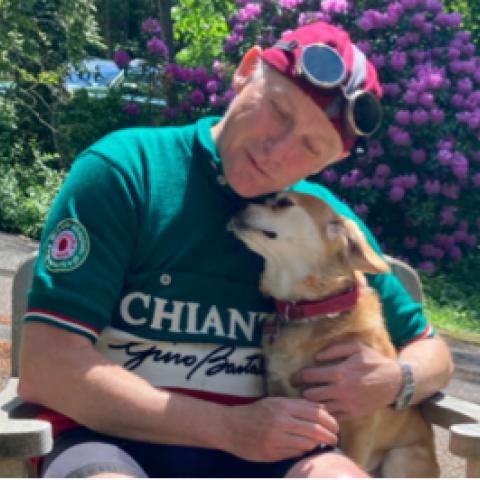

As a translational orthopedic researcher who practices small animal orthopedic surgery, my main research interest has been in genetics and complex trait mapping. My research has relied at a fundamental level on leveraging natural inherited disease in our veterinary clinical population to discover the genetic factors predisposing to complex trait inheritance. The Cornell Veterinary Biobank is the first biobank to achieve accreditation by the International Standards Organization (ISO 203807). I am convinced that properly processed and archived biological samples, with a clear chain of attribution, are critical to valid preclinical and basic research. Using these samples, I am interested in reducing the severity of complex orthopedic traits in dogs especially hip dysplasia, elbow dysplasia, rupture of the cranial cruciate ligament (ACL in humans), and Legg Calve Perthes disease using genetic and genomic tools. The goal is to develop a tool kit of genetic strategies to identify breeding dogs with good orthopedic genetic quality to predict and prevent and introduce novel therapies for orthopedic disease. As a surgeon, I am concerned about surgically-related orthopedic infection in dogs and how to better surveil these infections in our teaching hospital to reduce and prevent them using epidemiological, genomic and metabolomic tools.

My research focuses on new avenues towards therapeutic intervention by better understanding the pathogenesis of diseases important to veterinary and human medicine. Stem cell biology and viral pathogenesis are the 2 main focus areas in the lab.

My research focuses on the structure and function of viral envelope proteins — how genomic mutations lead to changes in the envelope proteins and control viral pathogenesis in influenza viruses and coronaviruses, including SARS-CoV-1 and 2, MERS-CoV and feline coronaviruses. This work supports novel vaccines, therapeutics and diagnostic test development.
Staff

Operations Coordinator
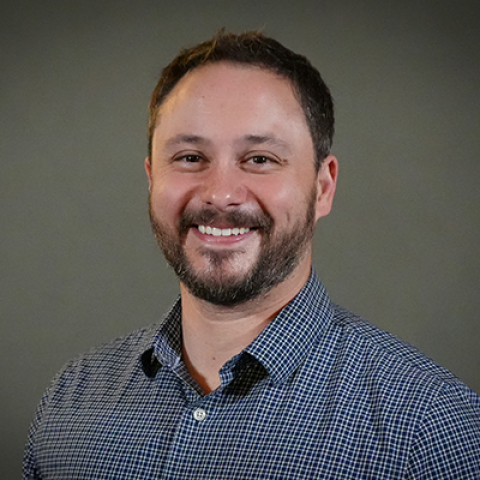
John Enright has served as a digital marketing specialist for the Baker Institute for Animal Health, the Cornell Richard P. Riney Canine Health Center and the Cornell Feline Health Center since 2022. His responsibilities include photography, videography, creation of printed materials, display items, graphic design and website management.
Enright previously worked in the Cornell University athletics department as assistant director of athletic communications. He assisted in the department’s multimedia efforts and aided in the execution of on-site productions for Cornell on the ESPN family of networks.
Prior to Cornell, Enright was a multimedia specialist for Ithaca College. He helped create video and audio content for Ithaca's 27 varsity teams, including interviews, web streaming, highlights and specialized material focusing on coaches, athletes and facilities. Enright also served as an adjunct professor in the Roy H. Park School of Communications.
Enright is a 2009 graduate of East Stroudsburg University. He obtained his master's degree from West Virginia University in 2011, and earned a certificate in digital marketing from the Cornell SC Johnson College of Business in 2019.
A native of Garnet Valley, Pa., Enright currently resides in Freeville, N.Y. with his wife, Michelle, and Boston Terrier, Louie.
Digital Marketing Specialist

Heather A. Hughes is an accomplished communications professional with extensive experience in strategic marketing, public relations, and community engagement. Currently serving as the Assistant Director for Communications & Marketing at Cornell University's Animal Health Centers, Heather leads the development and execution of multi-channel marketing strategies, collaborating with faculty and staff to enhance the visibility of the centers. Her previous roles include Director of Sales and Marketing at the Ithaca/Tompkins County Convention & Visitors Bureau and Director of Community Relations & Development at Racker, where she successfully led rebranding initiatives and fundraising efforts. Heather holds a Bachelor of Science in Travel and Tourism Administration from Niagara University, bringing a strong foundation in hospitality management to her diverse career.
Her animal family members include two labradors, Macy, a Cornell College of Veterinary Medicine blood donor, and Winston, their Morkie, Milly, and a variety of chickens.
Assistant Director for Communications & Marketing
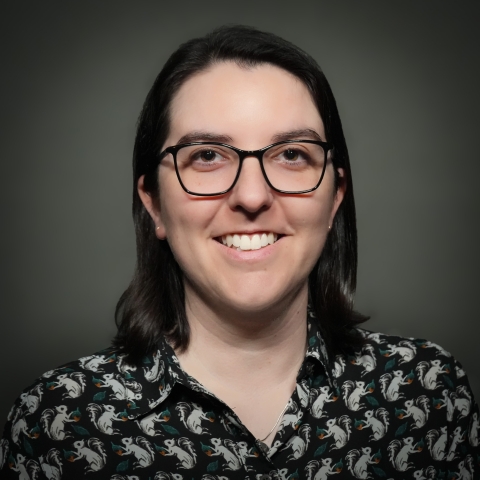
Junelle King joined the marketing and communications team supporting the work of the Animal Health Centers to assist in strengthening and bringing greater visibility to the Baker Institute for Animal Health, the Cornell Feline Health Center and the Cornell Richard P. Riney Canine Health Center through social media campaigns and content creation. Junelle also aids in the development of timely and accurate content for the Animal Health Center’s websites, longer form content creation, collaborating on multi-media projects and assisting in management of digital assets.
Before joining the team in 2024, King worked in veterinary medicine at Cornell University Hospital for Animals since 2018. As a licensed veterinarian technician (LVT), she worked in both small and large animal anesthesia, radiation oncology and medical oncology.
In her free time, King enjoys going for walks with my rescue dog, Xena, as well as gardening, birdwatching and crocheting.
Marketing and Social Media Specialist

I graduated from the Cornell College of Veterinary Medicine in 1992, then spend a year in a private veterinary practice in metropolitan New jersey before returning to Cornell as its first veterinary cardiology resident in 1993. I was board certified in veterinary cardiology in 1997, and completed a PhD in pharmacology here at Cornell in 2005. I was the associate director of the Cornell Feline Heath Center from 2012-2019, and have been its director since 2019.
I have been a lifelong dog and cat owner, and I feel honored to be able to help dogs, cats, and and a number of other species of animals live happy, healthy lives by diagnosing and treating their cardiovascular diseases. In addition to my work in the clinic, I am dedicated to helping owners understand and advocate for the well-being of their pets through the provision of validated information and support.
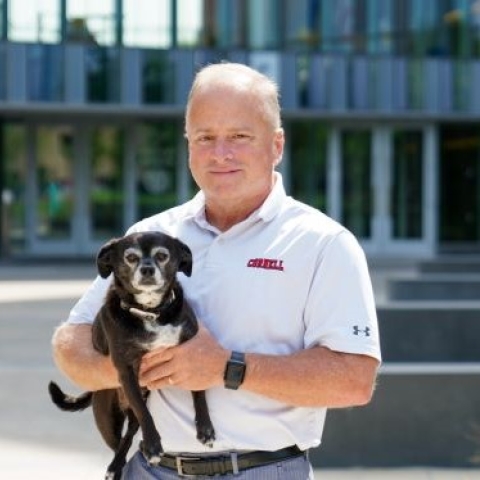
Dr. David Lee has joined the CVM leadership as faculty and associate dean for external programs. Dr. Lee will provide oversight of the Center for Veterinary Business and Entrepreneurship (CVBE) and in the continued development of the Canine Health Center. He will also contribute to teaching and expanding the CVBE’s course offerings for veterinary students, other degree programs and for external audiences.
Most recently, Dr. Lee comes from the University of Minnesota College of Veterinary Medicine, where he had served as hospital director of one of the nation’s largest veterinary teaching hospitals since 2006. He held a faculty position as associate professor of veterinary practice management and served as director of career development. In 2018, Dr. Lee was inducted into the UMN Academic Health Center’s Academy for Excellence for Health Care Practice for the successful design and implementation of pet wellness plans in a teaching hospital setting. At Minnesota, Dr. Lee also served as interim chair of their Department of Veterinary Clinical Sciences. From 2003 to 2006, Dr. Lee served as hospital director at Colorado State University.
Dr. Lee received his B.S. degree in animal science (’88) and his D.V.M. (’94) from Cornell University. He was a small animal general practitioner in Portland, ME before returning to Cornell as an instructor and extension veterinary for the college’s endocrinology laboratory. He received his MBA degree from the Johnson School in 1999 and stayed on at the CVM as director of external relations and marketing until 2003.
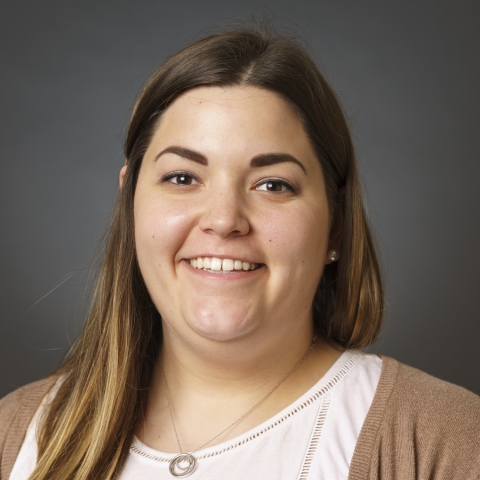
Ashley McLean is an event coordinator at the Richard P. Riney Canine Health Center and the Cornell Feline Health Center, where she plans events that support the centers' missions of advancing animal well-being through research, education, and outreach. Her work helps create meaningful experiences that connect communities to the centers' goals.
Before this role, Ashley was part of the student activities and special events team at Cornell University’s Johnson Graduate School of Business. There, she organized a variety of events that fostered community and enhanced the student experience.
Ashley holds a degree in Recreation, Parks, and Leisure Studies from SUNY Cortland, where she focused on program and conference planning. This foundation has equipped her with the skills to manage successful events in both the nonprofit and academic sectors.
Originally from the Finger Lakes region of upstate New York, Ashley enjoys spending time outdoors with her two golden retrievers, Gus and Indie. They bring plenty of joy and adventure to her life outside of work.
Events Coordinator
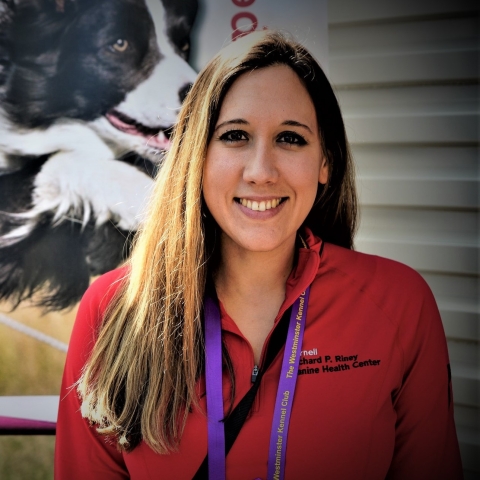
Programs & Operations Lead for External Programs

Associate Director for Finance and Administration

Membership Coordinator


